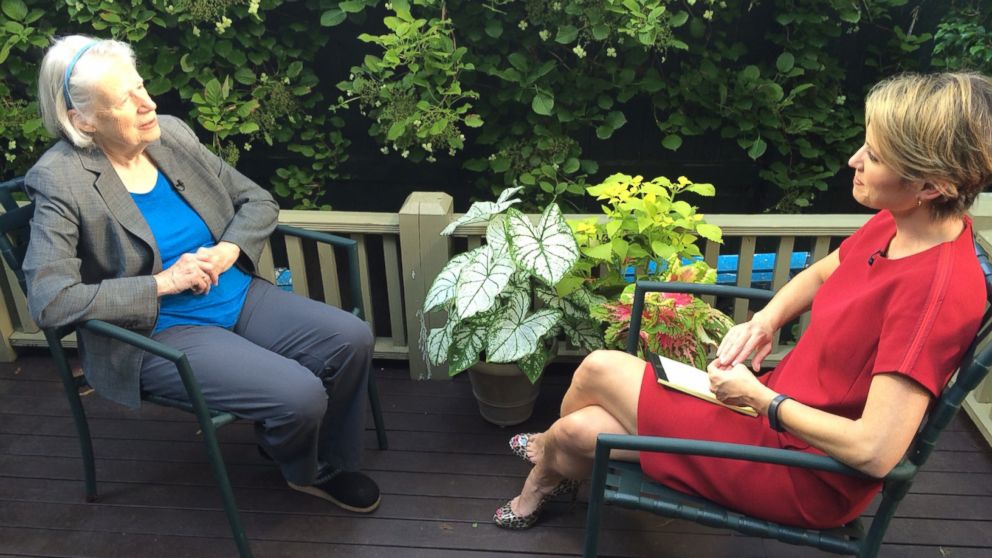How US Writer Peter Theo Curtis' Mother Reacted When She Learned Son Was Freed
— -- The mother of U.S. writer Peter Theo Curtis, who was freed Sunday after being held hostage for two years by Syrian militants loyal to al-Qaeda, described the moments when she learned her son had been freed.
“It was wonderful,” Nancy Curtis told ABC's Amy Robach in a sit-down interview. “Usually, he doesn’t have a lot to say to me, you know, typical guy… [but] he was so over-the-top excited. I think, obviously, he has to decompress. He has been through so much, so many terrible things I don’t know about, and don’t really want to know about.”
Peter Theo Curtis, 45, of Massachusetts, had been held for 22 months by Syrian terrorist group Jabhat Al-Nusrah, a different terror group than the ISIS extremists who beheaded U.S. photojournalist James Foley.
Curtis was handed over to United Nations peacekeepers in Al Rafid village, located in the Golan Heights region between Syria and Israel, Sunday evening, 6:40 p.m. local time, according to the United Nations. He received a medical check-up before he was given to U.S. officials. After he was freed, Nancy Curtis said she got the chance to briefly speak with him on the phone.
Peter Theo Curtis Released by Captors in Syria
US, UK Closing in on Identity of Foley Executioner, Sources Say
US Military Launched Secret Rescue Operation in Syria for James Foley, Other Americans
Curtis' release comes as U.S. officials say they are closing in on the ISIS executioner who killed Foley. Prior to his death, Foley had been held hostage by ISIS for two years. The days after learning of Foley’s execution were “excruciating,” Nancy Curtis said.
“It was a real roller coaster,” she said. “I was getting words of reassurance but when I didn’t hear something. I worried something would go wrong. In Theo’s case, it turned out all right.”
When her son left for Syria, Curtis said she first realized something was wrong when she got an email from him that simply said, “Hey,” but didn't include a message. Then she didn’t hear from him again until nine months later, when a photojournalist who made a harrowing escape through a window in a cell he shared with Curtis revealed the first information about their long captivity.
“There was nobody there to push [Theo]," Nancy Curtis said. "They were alone in the cell, and [the photojournalist] stood on his shoulders. There was a window high up and he tried but there was nobody there to give him a shove.”
Then the Curtis family received ransom demands from their son's captors, as high as $25 million dollars. Samantha Power, the United States representative to the United Nations, connected the Curtis family with the Qatari government, a U.S. ally which has helped communicate with Jabhat Al-Nusrah in the past. But the U.S. government imposed a condition saying it could not pay the ransom.
The family and U.S. officials then demanded Curtis’ captors show proof that he was still alive, sending questions that only he would be able to answer and wouldn’t be easily found on the Internet.
“I was struggling because you don’t know all these intimate details about your son’s life when he’s 45,” Nancy Curtis said. “Then I remembered, ‘what was the subject of your PhD dissertation, what museum did you write about.’ … and it came back, ‘the Western Museum,’ and I thought, ‘Yes, that’s right, and nobody would know that. It was very exciting.”
Previously, Curtis said she had received a video of her son begging for his life.
“[The FBI] said ‘we don’t think you want to watch this,’ and I said, ‘I certainly do not,’” she said. “You don’t want to see your child in distress, fearful, looking dirty and disheveled, those are obscene images.”




